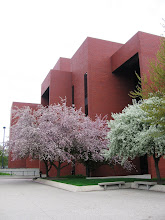Teachers Use Digital Media Repository to Help Students Learn about the U. S. Civil War

The Ball State University Libraries welcomes opportunities to collaborate with faculty on using technology to enhance the classroom experience and to provide tools for knowledge building.
Recently, three teachers from Burris Laboratory School used the digital resources available in the Digital Media Repository as part of their classes on the U.S. Civil War. Burris Social Studies teacher Sandra Cantu and Assistant Professor of English Ronald Bullock brought 38 eighth-grade students to the University Libraries to learn about the resources available in Digital Repository of U.S. Civil War Resources for East Central Indiana and see actual Civil War documents in the collections of the Archives and Special Collections Research Center.
In addition, Social Studies teacher Karen Avery used the University Libraries’ digital collection of Civil War-era letters and documents in her class.
“I found the quality of information on the website unbelievable and easy to search and to project in the classroom,” said Ms. Avery. “The students were able to view primary source accounts of Abraham Lincoln’s assassination with the touch of a computer key, making U.S. History come to life in the classroom. As an educator I can’t wait to explore other key people and events displayed on the site, and share this great source with the students.”
During the students’ visit, James A. Bradley, Head of Metadata and Digital Initiatives, showed a sampling of images, videos, documents, and other materials in the Digital Media Repository. “Using the Civil War letters and images of Burris School, I showed them how to use the DMR as a research tool,” he said. “We learned how to access it, how to use it and how to search it.”
Archives & Special Collections supervisor, Jane Gastineau, shared actual letters written by soldiers from east central Indiana who served in the U.S. Army. The students were very interested in patriotic decorations and messages imprinted on envelopes and stationary. Some worked hard at trying to read the handwriting. “The students were able to compare the actual documents with the digital versions,” said Jane. “They saw letters discussing Lincoln’s assassination and describing battles and marches.”
Development of the Digital Repository of U. S. Civil War Resources for East Central Indiana is supported by the Institute of Museum and Library Services under the provisions of the Library Services and Technology Act (LSTA), administered by the Indiana State Library. Ball State University Libraries received an LSTA grant to develop these digital resources. The project allows for collaboration between and provides access to Civil War materials in the BSU Libraries, Muncie Public Library, Delaware County Historical Society, Henry County Historical Society, and the U.S. Vice Presidential Museum at the Dan Quayle Center.
Project coordinator John Straw said that the purpose of the digital collection is to provide access to digital versions of unique U.S. Civil War materials from East Central Indiana for teaching, learning, and research by elementary, high school, college/university students and faculty, and the public. Users are able to remotely access, examine, and study letters, diaries, photographs, and other Civil War documentation that have been previously available only onsite.
Examples of the materials located at http://libx.bsu.edu/LSTA/LSTACivWar.html include:
• G.W.H. Kemper Collection (1859-1919) of letters between Kemper and his wife
Cassady-Nelson Family Collection (1759-1961) including a diary and an inspirational pamphlet written especially for soldiers entitled “A Rainy Day in Camp,” and Civil War letters of D.W. Nelson
• A summons to investigate the treatment of Northern prisoners held in Southern prison camps
• The diary and letters of Absalom Shroyer from the Delaware County Historical Society
• Several family files from the Henry County Historical Society with letters written by soldiers who were serving in the war
For more information on the collections or how you can use them for learning and teaching, contact John Straw at JStraw@bsu.edu or call (765) 285-5078.
This article was published in The Library Insider May 2006, pg. 6.


0 Comments:
Post a Comment
<< Home